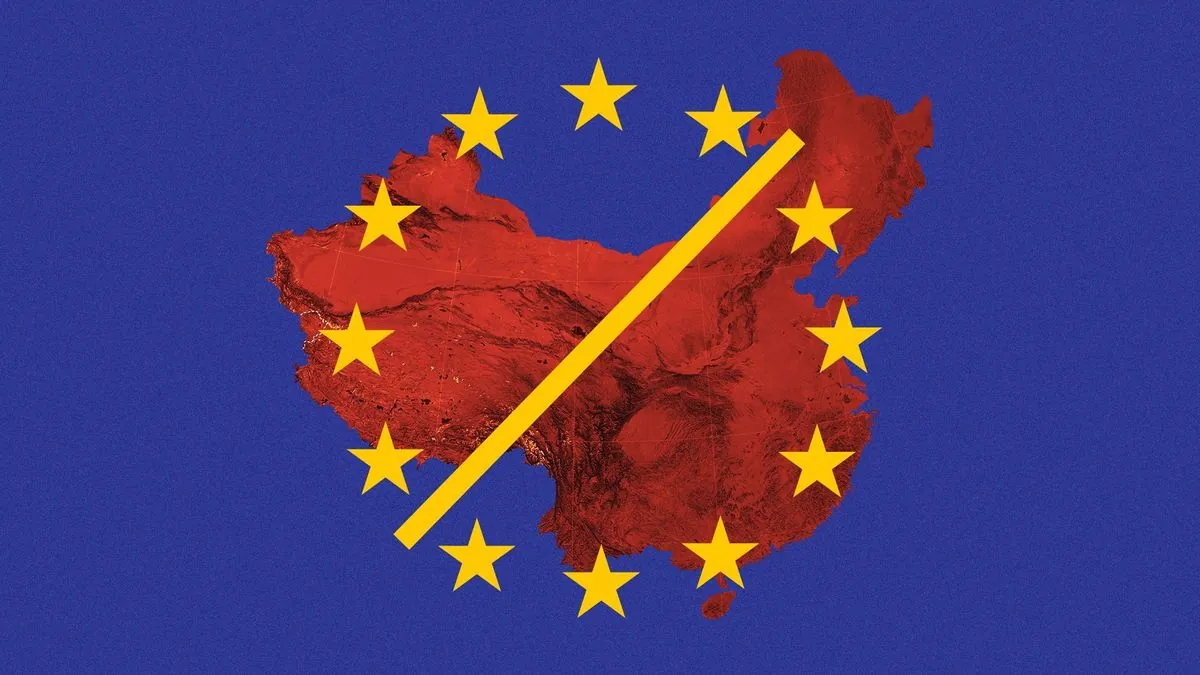EU's Crucial Role in Deterring Potential Chinese Invasion of Taiwan by 2028
A hypothetical scenario explores the EU's potential to deter a Chinese invasion of Taiwan through economic sanctions. The article analyzes the effectiveness of various sanction tools and highlights the EU's trade leverage.

In a hypothetical scenario set in 2028, U.S. intelligence services anticipate a potential Chinese invasion of Taiwan. This situation prompts a critical examination of the global response, particularly the role of economic sanctions as a deterrent.
The Group of Seven (G7) nations, led by the United States, would likely consider implementing severe economic sanctions against China to prevent such an invasion. However, the effectiveness of these measures remains uncertain, given China's probable anticipation of such consequences.
The European Union's stance could prove pivotal in this scenario. As China's largest trade surplus partner, the EU's participation in sanctions could significantly alter Beijing's cost-benefit analysis. However, the EU's ability to leverage this position effectively by 2028 is questionable.

By 2028, traditional Western sanction tools may lose their potency against China:
Financial sanctions: Chinese firms are increasingly using the renminbi for cross-border trade, potentially shielding them from Western financial channels. China's development of CIPS, an alternative to SWIFT, further reduces vulnerability to such measures.
Export controls: China's technological advancements, such as producing 7-nanometer chips in 2023 and anticipated 5-nanometer chips in 2024, suggest that export controls may only slow, not halt, Chinese progress.
Trade measures: These could be the EU's most effective tool. China's reliance on exports, accounting for nearly 20% of its GDP, presents a vulnerability that the EU could exploit.
The EU's economic ties with China remain strong, potentially providing leverage:
- EU imports from China grew by 41.9% between 2019 and 2023
- German foreign direct investment in China in the first half of 2024 exceeded the entire 2023 figure
- The EU's reliance on Chinese technology-intensive goods is increasing
This contrasts with the United States, which has seen a nearly 5% drop in imports from China since 2019.
"We must resolutely advance the process of China's complete reunification."
The EU's response to a potential Taiwan crisis could be more influential than currently assumed. However, coordinating a unified stance among member states with diverging views on China poses a significant challenge.
Given the potential impact of the EU's position, it is crucial for the bloc and its member governments to begin planning their response to a Taiwan crisis. The EU's past handling of crises, such as the European debt crisis and the COVID-19 pandemic, demonstrates its capacity to unite in the face of catastrophe.
As the geopolitical landscape evolves, the EU's role in maintaining global stability and deterring potential conflicts becomes increasingly significant. Proactive planning and a unified approach will be essential in navigating the complex dynamics of international relations and safeguarding peace in the Taiwan Strait.


































